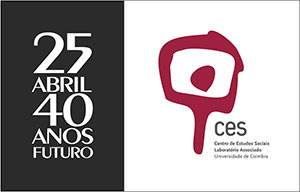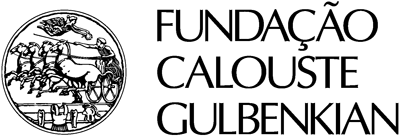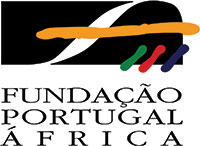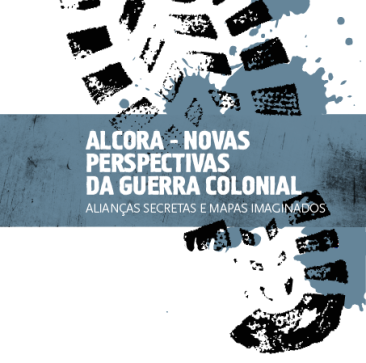Round Table and Films
Roundtable with writers and artists (September, 11th)
Participants: Tiago Borges (Angola), Bela Rocha de Sousa (Mozambique), Armindo Espírito Santo (São Tomé and Príncipe) and Kimi Djabaté (Guinea-Bissau).
Moderation: Clara Carvalho (ISCTE-IUL)
Cinema Sessions
September 10, 2014, 9:00 pm, CES Room 1

9.00 pm: Screening of "Legna: habla el verso saharaui" (Spain and Western Sahara, 95 minutes), with comments from the directors Juan Robles and Juan Carlos Gimeno (Room 1, CES).
Synopsis: “LEGNA: the sahrawi verse speaks” is a tale of visual poetry that runs through the essential elements of the Saharawi culture, interlinking the verses recited rigorously and evocative in Hasania and Spanish, by poets and poetesses own. Poems that evoke the essentials of Bedouin material culture linked to the movement from the Hamra Saquia to Rio de Oro. A magical journey from the Draa River in the north to Agüenit and Leyuad on the southern border with Mauritania, from coastal white beaches of Boujdour to eastern imprecise boundaries, the Badia. A Saharawi territory marked by the trace of a recent history of revolution, war and expects. Territory, history, culture, basted from the brimming poetry of life, love and nostalgia.
September 13, 2014, 9pm, CES Room 1

9.00 pm: Screening of "A Batalha de Tabatô [The Battle of Tabatô]" (Guinea-Bissau and Portugal, 78 minutes), by João Viana, with comments by José Luís Pires Laranjeira (FLUC), [Room 1, CES].
Synopsis: Fatu’s father has returned home to Guinea-Bissau from Portugal to attend her wedding. The young woman teaches at the university and her future husband is a well-known musician. Their wedding is supposed to take place in Tabatô, a village where everyone makes music. On the way there, it becomes apparent that the father is seriously traumatised by his experiences as a soldier in the colonial war decades earlier. A post-colonial narrative in black and white and red. This visually fascinating film incorporates many documentary elements into its story: the references to the historical achievements and cultural traditions of the West African Mandinka; the engagement with the town of Tabatô and the country’s real life musicians; the images of the cinema, cemetery, harbour and marshlands. The old man carries relics from the war in his suitcase. The young people are tired of the frequent putsches. Both have left their mark on the country’s current reality. When the father finally fights his demons and the village musicians seek to banish them by playing on their balafons, it becomes a battle of war versus peace and past versus future.










